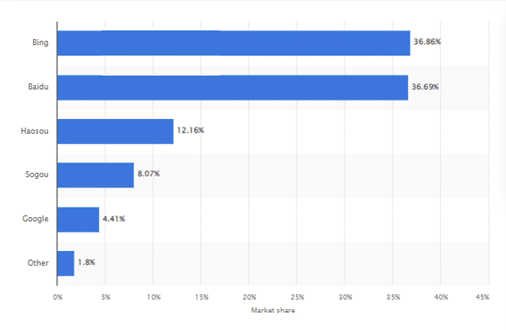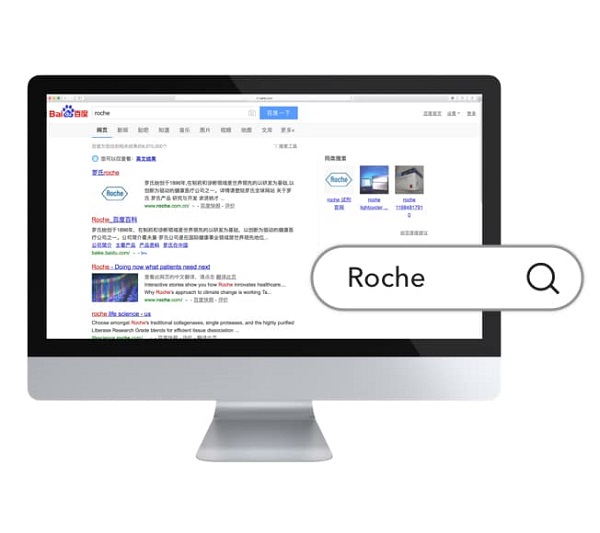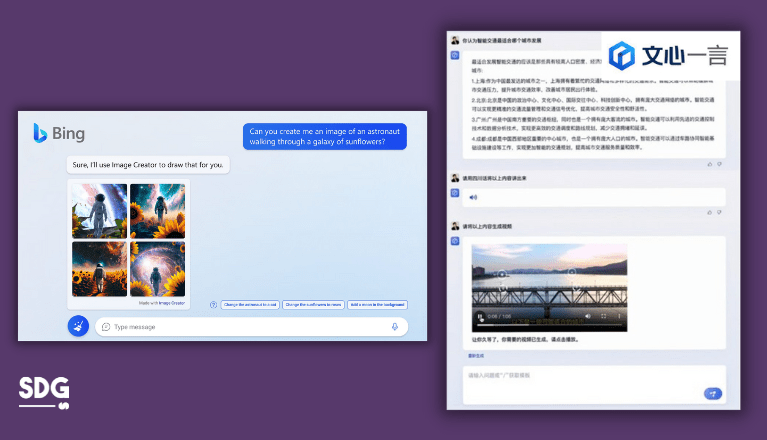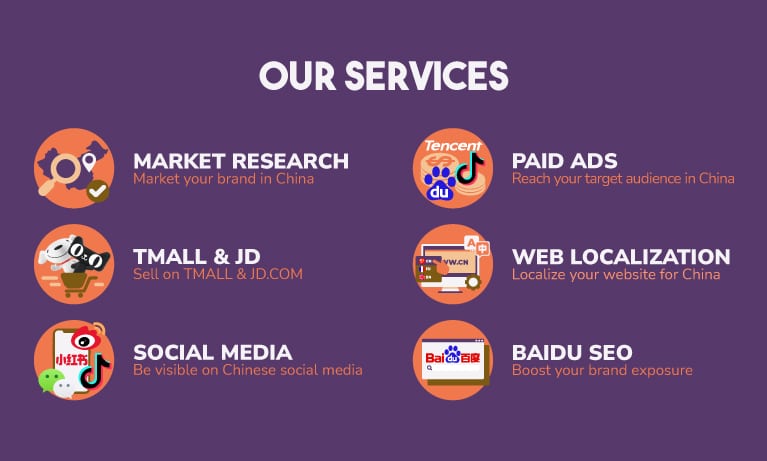As the Chinese search engine landscape continues to evolve, the options you can use for your SEO strategy also go beyond just Baidu. You may not know, but one of the major players making waves in today’s local industry is Microsoft Bing.
While not as massive as Baidu or Google search engines, Bing adopted cutting-edge technologies that allow an interactive search experience. Because of its dynamic nature, it has gained the interest and patronage of many Chinese users.
In this Bing vs Baidu comparison, we’ll discuss the increasing competition within the Chinese search engine market and determine how these platforms can help your local SEO campaigns.
Can you use Bing in China?
Unlike other search engines in the Western market, Microsoft Bing is still highly accessible in the local internet landscape and surprisingly unaffected by the Great Firewall policies.
China exemplifies some Microsoft services after the search engine willingly complied with the stringent Chinese censorship and advertising laws. Bing’s growing presence in the local market has led the platform to be the most-used desktop search engine, surpassing Baidu in the said category.

What is the difference between Bing and Baidu?
● Target Audience & Market Size
It’s no secret that Baidu is China’s most popular search engine. However, it’s worth noting that most of its 677 million monthly visitors often access the website through their mobile devices.
Meanwhile, according to recent data, 65.09% of Bing’s online population are Chinese internet users who access the web through desktops.
Keep in mind that the mobile penetration in the local market is around 99.8%, while internet users using desktops only account for 34.4% of the overall Chinese internet landscape. From this statistical difference, it’s easy to see that both websites cater to varying demographics in the country.

Market share of major desktop search engines 2023 (Source: Statista)
Although Baidu’s market share of $38.29 Billion does not compare with Microsoft Baidu’s size in the local market, the latter holds the top position in terms of desktop searches. It covers 36.86% of overall users in this category, surpassing Baidu by a mere 0.17% in 2023.
Despite not being a locally-developed platform, it has achieved a remarkable feat as the second-leading search engine in China. Currently, its global market share includes 100 million users worldwide, but only around 32.9 million are from the Chinese market.
● Ranking Factors for Organic Search Results
Bing has always had a close association and similarity with Google, but it doesn’t mean that this search engine handles content rankings in the same way.
For example, it emphasizes social media integration and social signals more than most of its Western rivals. Like Chinese search engines, it puts more value on the number of backlinks, whereas Google opts to analyze its quality.
And while the platform has a Chinese version, its search results are not that finely tuned to the needs of local consumers.
Baidu obviously has an edge in the local search engine market as it’s highly optimized for the Chinese language and local content. On top of that, it has a deep integration into China’s government regulations and censorship, impacting how its search results rankings appear on the platform.

SDG’s Work With Roche: Baidu SEO Implementations
Foreign marketers who intend to conduct search engine optimization on their brand content should also remember that Baidu SEO highly relies on factors like keyword density and meta tags when it comes to local rankings.
Although Bing also considers those factors, it may give more weight to multimedia content. Besides that, this search engine prefers to include well-established, authoritative sites in its rankings.
● Language Optimization
As one of the local search engines in China, Baidu predominantly operates in the Chinese language. When ranking its search results, it prioritizes content written in Simplified Chinese and websites that are hosted locally.

After Bing’s fundamental changes to accommodate China’s censorship laws, the search engine has long been filtering Chinese search results according to proper regulations.
As a top global search engine, it understandably supports multiple languages, including Mandarin Chinese. However, its optimization for the Chinese language might not be as fine-tuned as Baidu’s due to its broader international focus.
And since Baidu deeply understands local language nuances, it can provide more precise and relevant search results from the web to your target audience.
● Censorship Laws and Regulations
As a Chinese company, Baidu’s approach to marketing and advertising content strictly aligns with local laws and regulations. In fact, the platform has even more stringent censorship, especially for products and services in the health and wellness industry.
Since Bing is an American company, it approaches the Chinese market as a foreign entity. So, while it operates with local regulations in mind, censorship is not as integral to its operational model as it is for Baidu.
Nevertheless, regardless of whether you’re using Bing or Baidu, all promotional data from a brand advertising in China must undergo strict modification and monitoring to ensure compliance with local standards.
● Artificial Intelligence Integration
Microsoft Bing has recently gained significant online traction due to its artificial intelligence integration. This upgraded version operates with the GPT 3.5 AI model, giving users access to non-traditional search methods and a more personalized user experience.
Meanwhile, Baidu is among the few search engines with the latest iteration on the future of AI in China. In March 2023, the platform released its chatbot called Ernie Bot. It can generate text and images in response to queries sent by users.

As a local platform, Baidu’s AI integration includes language processing technologies specifically designed for Chinese languages that Bing does not possess.
It also extends its AI applications beyond search to domains like smart devices. In contrast, Bing’s AI integration focuses more on enhancing search functionalities.
What is the advantage of using Bing for your SEO Strategies in China?
1. Enhanced Search Experiences
Like most sophisticated search engines on the web, Bing’s search algorithms are equipped with advanced AI and machine learning technology. Thanks to this feature, it can provide deep understanding and contextually relevant search results.
The platform’s focus on visual and voice search also presents brands with different ways to reach their target audience. It will not only attract users but also encourage deeper engagement with your content, which can positively impact your SEO results.
2. Less Competition
A lower market share in the local market does not necessarily mean anything negative about your SEO strategy. Where Baidu is the dominant search engine, Bing represents a less crowded space to reach your target market.
The reduced competition can be a significant advantage when ranking your content on this search engine. With fewer businesses fighting for the top spots, your content has a better chance of achieving higher visibility on its results.
3. Integration with Microsoft Products
As a foreign company, chances are you’re using several Microsoft-related products while marketing your brand in China. Bing’s compatibility with the Windows operating system and Office Suite presents a massive convenience and efficiency.
If your business is already part of the Microsoft ecosystem, optimizing for this platform can lead to more cohesive and streamlined digital marketing strategies.
4. Dynamic Market Reach
Bing’s market reach is both dynamic and diverse. While it serves the Chinese market, it also caters to a global audience, offering opportunities to target users beyond China.
Furthermore, Bing’s presence on various platforms, including desktop and mobile devices, ensures that your SEO efforts are not limited to a single user type or device, broadening your potential audience reach.
Quick Q&A
Is Bing a good search engine?
Yes, Bing is a good search engine. It offers robust search capabilities and integrates advanced technologies like AI for better user experiences. However, its features and algorithms are generally not fully optimized for the needs of Chinese audiences.
Is Bing better than Google?
Whether Bing is better than Google depends on the user’s needs and preferences. However, since the latter is not accessible in China, Bing serves as a great alternative in the local search engine market.
Is Bing overtaking Baidu?
No, Bing is not overtaking Baidu’s position in China. It remains the dominant search engine in the Chinese market, largely due to its optimization of local user preferences and alignment with China’s regulations.
Your Search Engine Optimization Partner in the Chinese Market!
In the ever-changing local digital landscape, it’s essential to stay ahead of your competitors with a comprehensive understanding of the major search engine players like Baidu and Bing. Choosing which of these platforms suits your SEO goals can be challenging, especially for a new brand in the Chinese market.
Don’t let the complexities of the local market hold you back! Our experienced team is here to guide you through every twist and turn, unlocking your brand’s full potential and ensuring resounding success in this dynamic landscape.

From crafting compelling marketing campaigns to harnessing the power of SEO and social media, we provide the digital solutions you need to thrive. If you’re ready to elevate your marketing strategy, contact us for assistance!
References:
MICROSOFT BING OVERTAKES BAIDU AS CHINA’S TOP DESKTOP SEARCH ENGINE
Search Engine Differences: Google vs Yandex vs Bing vs Baidu
Bing is now the number one desktop search engine in China thanks to AI


